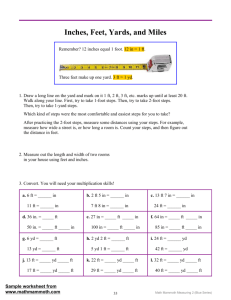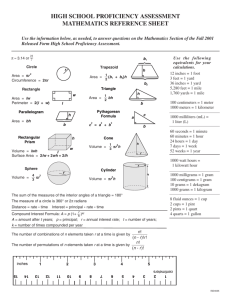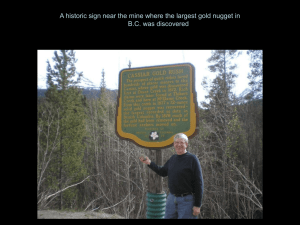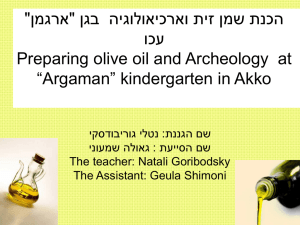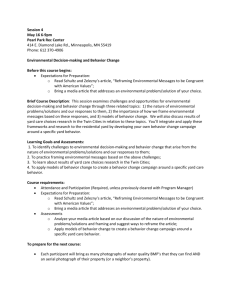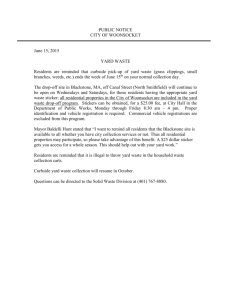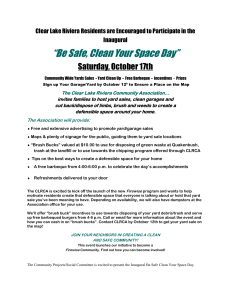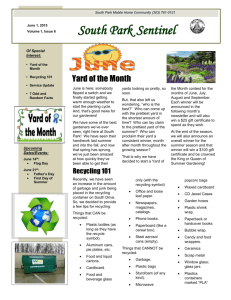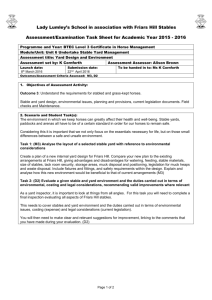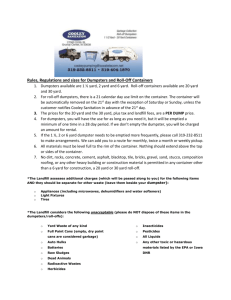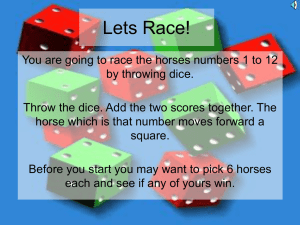Estimation - Paulding County Schools
advertisement
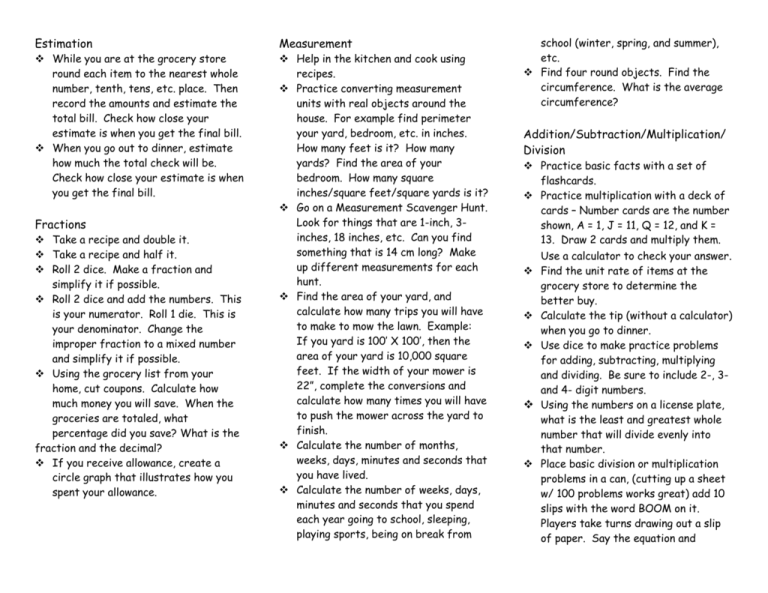
Estimation While you are at the grocery store round each item to the nearest whole number, tenth, tens, etc. place. Then record the amounts and estimate the total bill. Check how close your estimate is when you get the final bill. When you go out to dinner, estimate how much the total check will be. Check how close your estimate is when you get the final bill. Fractions Take a recipe and double it. Take a recipe and half it. Roll 2 dice. Make a fraction and simplify it if possible. Roll 2 dice and add the numbers. This is your numerator. Roll 1 die. This is your denominator. Change the improper fraction to a mixed number and simplify it if possible. Using the grocery list from your home, cut coupons. Calculate how much money you will save. When the groceries are totaled, what percentage did you save? What is the fraction and the decimal? If you receive allowance, create a circle graph that illustrates how you spent your allowance. Measurement Help in the kitchen and cook using recipes. Practice converting measurement units with real objects around the house. For example find perimeter your yard, bedroom, etc. in inches. How many feet is it? How many yards? Find the area of your bedroom. How many square inches/square feet/square yards is it? Go on a Measurement Scavenger Hunt. Look for things that are 1-inch, 3inches, 18 inches, etc. Can you find something that is 14 cm long? Make up different measurements for each hunt. Find the area of your yard, and calculate how many trips you will have to make to mow the lawn. Example: If you yard is 100’ X 100’, then the area of your yard is 10,000 square feet. If the width of your mower is 22”, complete the conversions and calculate how many times you will have to push the mower across the yard to finish. Calculate the number of months, weeks, days, minutes and seconds that you have lived. Calculate the number of weeks, days, minutes and seconds that you spend each year going to school, sleeping, playing sports, being on break from school (winter, spring, and summer), etc. Find four round objects. Find the circumference. What is the average circumference? Addition/Subtraction/Multiplication/ Division Practice basic facts with a set of flashcards. Practice multiplication with a deck of cards – Number cards are the number shown, A = 1, J = 11, Q = 12, and K = 13. Draw 2 cards and multiply them. Use a calculator to check your answer. Find the unit rate of items at the grocery store to determine the better buy. Calculate the tip (without a calculator) when you go to dinner. Use dice to make practice problems for adding, subtracting, multiplying and dividing. Be sure to include 2-, 3and 4- digit numbers. Using the numbers on a license plate, what is the least and greatest whole number that will divide evenly into that number. Place basic division or multiplication problems in a can, (cutting up a sheet w/ 100 problems works great) add 10 slips with the word BOOM on it. Players take turns drawing out a slip of paper. Say the equation and answer. If answered correctly the player keeps the problem, if incorrect, slip goes back in can. If a player pulls out the BOOM slip, all problems must be placed in the can. First player to answer 10 correctly without getting a BOOM is the winner. Geometry Make a list of geometric shapes that you see on a trip, your house, etc. Be sure to include two-dimensional and three-dimensional shapes. In your neighborhood, do you see more acute, obtuse, right or straight angles? Why? Create a Geometry Scrapbook of the shapes and angles you observe. Games Monopoly Checkers Chess Websites http://www.aaamath.com http://www.aplusmath.com http://www.coolmath.com http://www.edhelper.com http: //www.funbrain.com http://georgiastandards.org/ Click on Parent Tab http://www.visualfractions.com http://cte.jhu.edu/techacademy/web /2000/heal/mathsites.htm Problem Solving Write math riddles (with answers of course) for your family and friends. Devise a 10- question quiz for your mom, dad or friends. If they miss the problems, teach them the content. Entering FIFTH Grade These activities are designed to help students strengthen their mathematics skills during the summer months. Each child is encouraged to explore and have fun doing mathematics.
